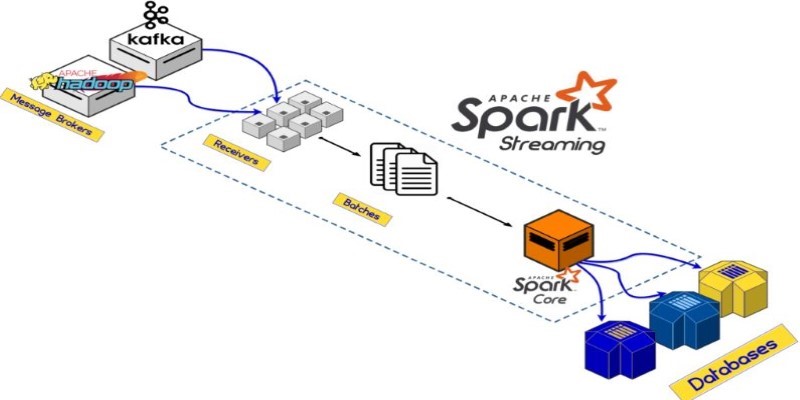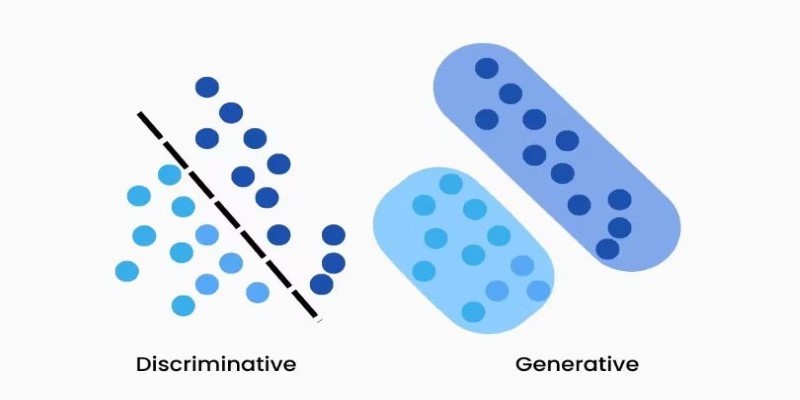In today's digital environment, influencer marketing is a great approach to advertising AI technologies. Companies work with celebrities to establish trust and attract possible consumers. Influencers show AI products, explain their advantages, and streamline difficult technology for consumers. Artificial intelligence techniques have extensive applications in the marketing, finance, and healthcare sectors. However, sometimes, people need guidance before they welcome AI-powered solutions.
Influencer marketing helps companies engage a suitable audience by employing reliable voices, raising brand recognition, and encouraging conversions. This article looks at how influencer marketing improves artificial intelligence capacities. It offers tactics for a good campaign, including selecting the correct influencers, producing interesting material, and evaluating results. Influencer marketing can help artificial intelligence firms increase their commercial scope and reach.

Understanding Influencer Marketing for AI Tools
Influencer marketing highlights goods through people with a great internet presence. Loyal followers of these influencers trust their advice. AI firms can work with them to present their tools interestingly. Although artificial intelligence systems are sometimes complicated, influencers help to demystify technical aspects using understandable language. They produce case studies, tutorials, and reviews demonstrating how artificial intelligence systems handle practical issues. It increases the confidence of possible consumers in using artificial intelligence technologies.
Among the influencers are tech bloggers, YouTubers, LinkedIn specialists, and artificial intelligence experts. A good campaign depends on choosing the proper influencer. Businesses should concentrate on influencers with an audience drawn in by technology and innovation. Furthermore, creating social proof is influencer marketing. People are more likely to use an artificial intelligence tool when a reputable specialist supports it. It builds reputation, raises brand awareness, and enables artificial intelligence startups to draw in more business.

Benefits of Influencer Marketing for AI Tools
For artificial intelligence firms, influencer marketing presents several benefits. These are some main advantages:
- Increased Brand Awareness: Influencers present AI tools to fresh audiences, enabling businesses to approach more potential consumers. One well-known influencer can create much interest in an artificial intelligence product.
- Improved Trust and Credibility: People follow influencers they trust. Influencers' recommendations of artificial intelligence technology increase their followers' belief of its worth. For consumers, this confidence quickens the decision-making process.
- Better Engagement and Customer Interaction: AI tools can be technical. Influencers produce interesting, easily understandable material that explains their advantages. This leads to more debates, remarks, and user interactions.
- Higher Conversion Rates: Higher revenues generally follow from influencer marketing. Followers of a reputable expert endorsing an artificial intelligence technology are likelier to try and purchase it. It raises sales of customers and income.
- Cost-Effective Marketing: Influencer marketing might be more reasonably priced than conventional advertising. Micro-influencers, in particular, produce excellent outcomes at less expense. A committed audience values their points of view.
How to Implement Influencer Marketing for AI Tools
Good influencer marketing calls for meticulous preparation. Businesses should begin with clearly stated objectives, such as raising brand awareness, creating leads, or driving sales. Ensuring the correct persons gain from AI techniques depends on knowing the intended audience. Selecting appropriate influencers is crucial. Businesses should work with influencers who produce real material, have an engaged audience, and grasp artificial intelligence technologies. Because of their devoted following, micro-influencers sometimes provide better interaction than more prominent ones.
The key is using influencers to produce interesting material. Product demos, case studies, live Q&A sessions, and quotes are among the effective materials, and using real-world examples should help simplify the advantages of AI tools. Using several sites maximizes reach. Tutorials are best found on YouTube, LinkedIn for professional conversations, Twitter for updates, and Instagram or TikHub for quick videos. Monitoring performance guarantees accomplishment. Businesses should track audience comments, website traffic, participation, and conversion rates. Future advertising can be improved using analytics technologies.
Best Practices for Influencer Marketing in AI
AI businesses should use these recommended practices if they are to maximize influencer marketing:
- Focus on Authenticity: Promoted AI tools should be supported by influencers. Forced endorsements diminish confidence and reputation. AI firms must give influencers reliable data, access, and experience. Real-time promotions improve audience involvement, which increases the likelihood of trust and application of AI tools for particular needs among possible consumers.
- Offer Free Access to AI Tools: Businesses should let influencers utilize their artificial intelligence technologies without charge. It helps them to produce sincere, perceptive material highlighting actual achievements. Free trials enable influencers to show the potency of the technology, hence building audience confidence and involvement. Real user experiences boost reputation and inspire possible clients to investigate artificial intelligence technology.
- Maintain Long-Term Partnerships: Developing long-term connections with influencers fosters audience trust and consistency in marketing messages. One-time specials are not as successful as constant teamwork. Regular participation guarantees constant credibility and visibility. Long-term alliances let influencers provide more in-depth insights, supporting the AI tool's value over time and enhancing consumer loyalty.
- Ensure Compliance with Regulations: Legal advertising rules must be followed in influencer marketing to keep credibility and openness. Influencers should reveal sponsored material using tags like #Ad or #Sponsored. Clear disclosures help to establish audience confidence, therefore avoiding false advertising. AI businesses must guarantee compliance to maintain moral marketing standards and avoid legal problems.
- Encourage Community Engagement: Businesses should actively interact with audiences consuming influencer material. Responding to comments, addressing inquiries, and starting conversations improve brand loyalty. Direct involvement builds trust, which increases the confidence of possible consumers about the artificial intelligence product. Promoting user-generated content and debates helps to improve brand awareness and community ties even further.
Conclusion:
Promoting AI products, allowing companies to engage the relevant audience, building confidence, and boosting conversions depend on influencer marketing as a strong weapon. Success involves selecting influencers, creating engaging content, and tracking performance. Long-term growth largely hinges on keeping authenticity and employing different channels. The major focus of artificial intelligence companies should be collaborations that help consumers. The adoption of artificial intelligence will be encouraged, brand awareness will be raised, and involvement will be increased by businesses employing the right strategy. A well-run influencer marketing strategy can significantly improve corporate success in the cutthroat artificial intelligence space.











